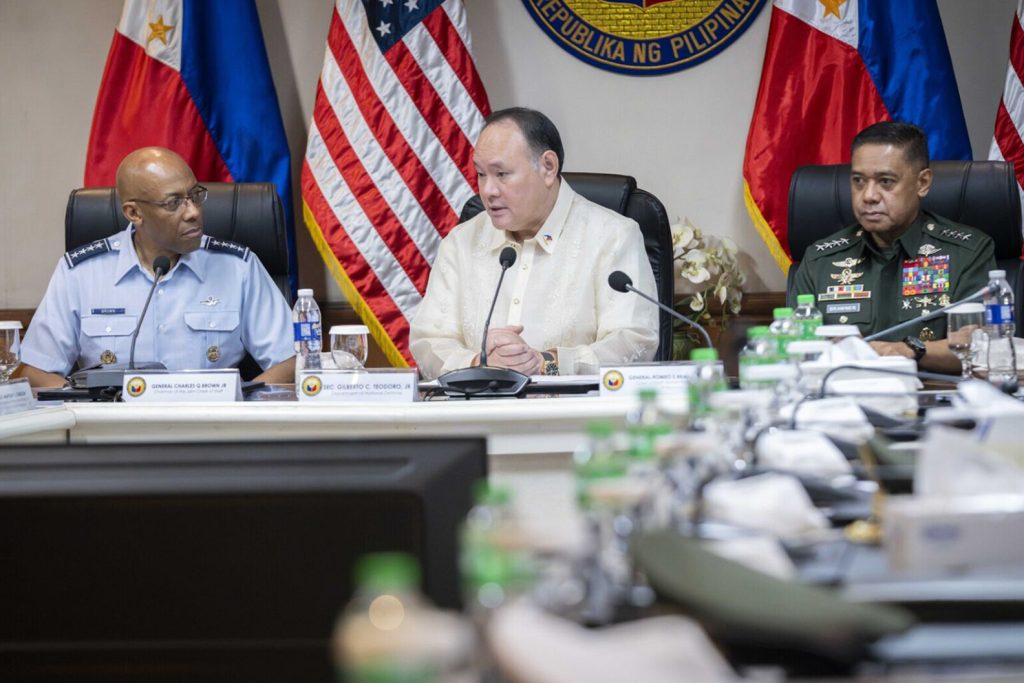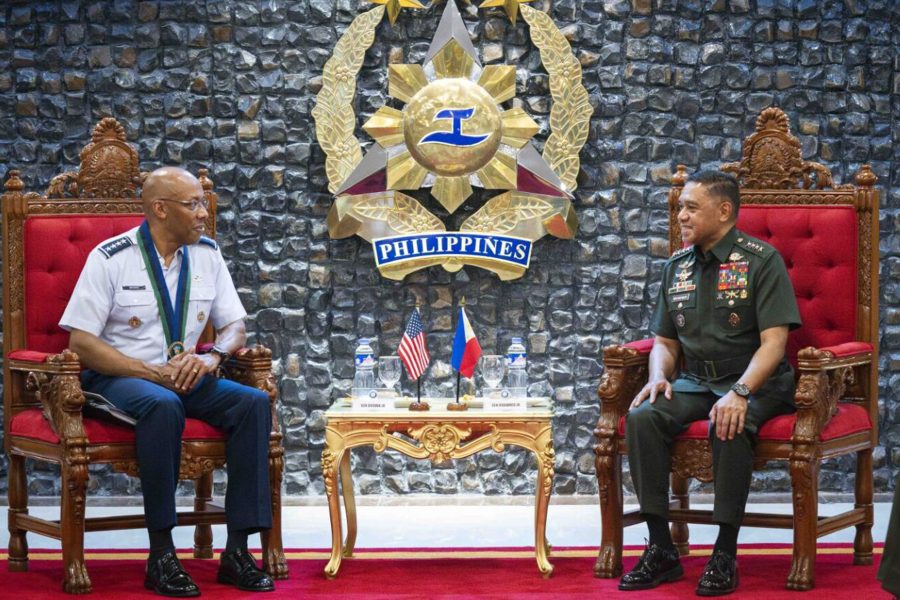Air Force Gen. Charles Q. Brown Jr., chairman of the Joint Chiefs of Staff, held meetings with defense leaders from the Philippines, Japan, and South Korea during a trip to the Indo-Pacific this week. In the Philippines in particular, Brown discussed ramping up joint training between the two nations amid Chinese hostility towards Manila.
Brown, the highest ranking U.S. military officer, met with Philippine National Security Advisor Eduardo M. Ano, Defense Secretary Gilberto Teodoro Jr., and Armed Forces Chief of Staff Gen. Romeo Brawner Jr. to discuss furthering the defense alliance between the two nations. His meeting with Brawner focused on “enhancing bilateral defense cooperation, strengthening joint military exercises, and addressing regional security challenges,” the Philippines Armed Forces said.
“I do see that the relationship is gaining momentum,” said Brown in a statement, adding that the Philippines’ relationships with other regional allies are also growing. “I think it’s a positive trajectory.”

During his inaugural visit to Manila as Chairman, Brown also toured a “U.S. rotational access site, designated as part of the Enhanced Defense Cooperation Agreement(EDCA),” according to a Pentagon release.
Under the 2014 EDCA agreement between the two nations, U.S. troops have access to designated Philippine military sites for joint training, exercises, and interoperability. In 2023, the countries agreed to add four locations to the agreement, with the U.S. pledging to help modernize the facilities with projects including runway upgrades, building communication systems, and infrastructure. The U.S. now has access to a total of nine bases where they could position aircraft and vessels in the country.
The U.S. and Philippines have boosted their joint training, following last year’s territorial disputes between the Philippines and China over the Second Thomas Shoal. Those incidents have continued, with the latest seeing Chinese coast guard attacking on Philippine fishing vessels with water cannons.
To defuse tensions, China and the Philippines have recently signed a new accord enabling direct hotline between their presidential offices, according to the Associated Press.
After Manilla, Brown traveled to Tokyo to meet with his counterparts from South Korea and Japan as part of the Trilateral Chiefs of Defense meeting between the three nations. The meeting covered China’s escalating regional aggression, North Korea’s persistent nuclear and missile activities, and its deepening military alliance with Russia amidst the Ukraine conflict.
“I expect that the three of us sitting here in Tokyo today will send a message to regional threats,” Brown said July 18 in a statement. “But also, more globally, on the strength of our relationship, our alliances and the work that we need to continue to do together.”
During the meeting, Brown assessed regional security, reviewed progress in trilateral information sharing, and explored ways to deepen security cooperation with Japan’s Gen. Yoshida Yoshihide, Chief of Staff of the Joint Staff, and South Korea’s Adm. Kim Myung-soo, Chairman of the Joint Chiefs of Staff.
Since last year’s presidential summit between Washington, Seoul, and Tokyo, the three allies launched a missile data sharing system and have held several joint exercises, including the latest ‘Freedom Edge’ exercise in June, focused on ballistic missile and air defense, as well as antisubmarine warfare.

